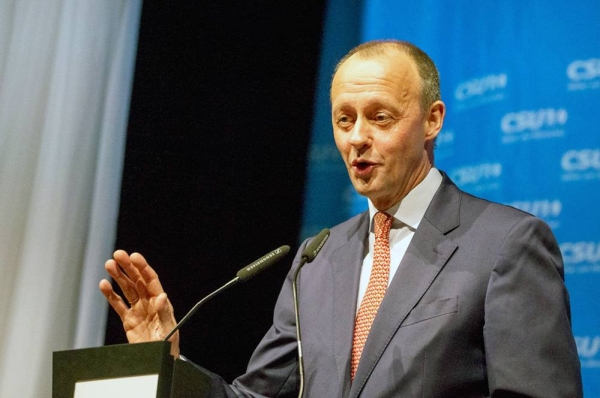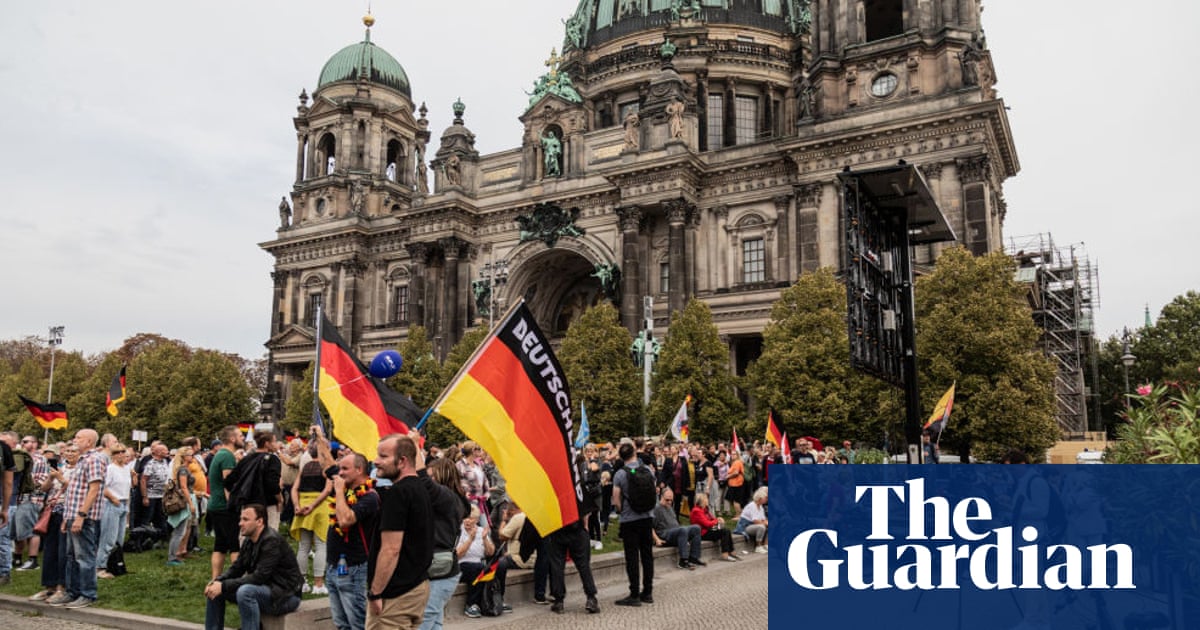
Germany made post-war history on Feb. 5. In a total shock, one of the country’s 16 state parliaments elected a premier with votes that included members of a hard-right populist party, the Alternative for Germany (AfD). Worse, one of the AfD leaders in that state, Thuringia, is Bjoern Hoecke, considered to be on the party’s extreme — indeed proto-Fascist — wing. Is Germany following the example Austria set decades ago and, 75 years after Adolf Hitler committed suicide in his bunker, normalizing the far right?
Not so fast. The Thuringian surprise is a political quake that will reverberate across Germany, and potentially Europe. But it doesn’t necessarily represent an accelerating shift to the right, and certainly not the beginning of a descent toward populist nationalism of the sort that’s become de rigueur in Hungary and Poland. What took place in Thuringia’s parliament this week is worrying. But it was constitutionally above board and may yet turn out harmless.
Thuringia is usually peripheral in Germany politics, and certainly unusual. Located in what used to be East Germany, it exemplifies that region’s political direction since reunification in 1990. The two strongest parties in its parliament are the Left, which is descended from the Socialist Unity Party that once ruled East Germany, and the AfD. The centrist parties that governed West Germany after 1949 and then the reunited country are weak in Thuringia.
It was widely assumed that Thuringia’s previous premier, Bodo Ramelow, would be reelected. He belongs to the Left, which is considered scandalous by Christian Democrats and other conservatives because of that party’s connection to former communist dictators. But he’s a pragmatic type, and personally popular. He couldn’t cobble together a majority in parliament with the Social Democrats and Greens on the center-left, but it was assumed that enough other centrists would support him.
They didn’t get a chance. After a series of surprising maneuvers, a candidate from the pro-business Free Democrats, the smallest party in the chamber, got himself elected to the premiership in the third round of voting. Thomas Kemmerich won with 45 votes to Ramelow’s 44, which means he must have drawn support not only from his own party and Angela Merkel’s Christian Democrats but also from the AfD.
The AfD, predictably, celebrated its coup. You can’t ignore us any longer, was its message to the nation. Just as predictably, all the other mainstream parties cried foul: The Left, the Social Democrats and the Greens accused Kemmerich and his Thuringian clique of breaking postwar “taboos” and kindling “political arson.” Notably, so did the national leaders of the Christian Democrats, including Annegret Kramp-Karrenbauer, the party’s boss and presumed candidate to succeed Merkel as Germany’s chancellor. She reprimanded the Thuringian branch of her party for playing with fire.
All of this means Kemmerich and his Free Democrats in Erfurt, all five of them, won’t be celebrating long. They don’t have a stable majority, since they don’t agree with the AfD on anything, and they’ve already pledged that they’ll never negotiate with extreme right-wingers. If Kemmerich plods along, his government will always be one vote of no-confidence away from collapse.
One way or another, the likeliest outcome of this crisis is that Thuringia will have to call a new election before long. And this time the region’s voters will have looked into the abyss, and will — one hopes — understand what’s at stake.
The politics of Thuringia resemble those of Germany and indeed all of Europe in becoming more fragmented and unstable. That doesn’t make a rightward drift inevitable. Modern Germany’s democracy is mature enough to weather this storm.Bloomberg











